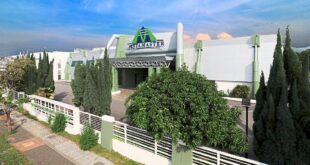KUALA LUMPUR: Petronas Chemicals Group Bhd said it will construct Asia’s largest advanced chemical recycling plant in Pengerang, Johor, with a capacity of 33 kilotonnes per annum (ktpa).
The plant is targeted to be operational by the first half of 2026, the petrochemicals group said in a statement.
The group said it had reached a final investment decision (FID) with regards to the construction of the the plant, which will be part of its New Plastics Economy agenda to support the transition towards a circular economy and contribute to a sustainable plastics ecosystem.
It will unlock plastics waste chemical recycling capabilities in Malaysia through the conversion of end-of-life plastics into pyrolysis oil or TACOIL, which can be used as chemical feedstock towards the production of sustainable plastics.
“Through the advanced chemical recycling plant, we envision driving innovation across the plastics value chain while creating opportunities for all parties, from waste collectors to manufacturers, to jointly contribute to the circular plastics economy.
“This enables us to propel the nation’s aspiration in phasing out single-use plastics, in line with Malaysia’s Plastic Sustainability Roadmap 2021-2030, while fulfilling the growing demand from major brands for sustainable packaging,” said Petronas Chemicals managing director and CEO Mohd Yusri Mohamed Yusof.
The group also announced its subsidiary had signed the technology licence agreement with Plastic Energy Ltd and awarded the engineering, procurement and construction (EPC) to Mutiara Etnik Sdn Bhd.
According to the group, Plastic Energy will be providing the chemical recycling technology for the plant through its patented TAC process, which heats mixed post-consumer plastic waste in the absence of oxygen.
This process then produces hydrocarbon vapours, that are condensed into pyrolysis oil or TACOIL which can be used as a substitute for hydrocarbon feedstock in the production of food-grade recycled plastics.
 BeritaKini.biz Berita Viral Terkini di Malaysia
BeritaKini.biz Berita Viral Terkini di Malaysia





